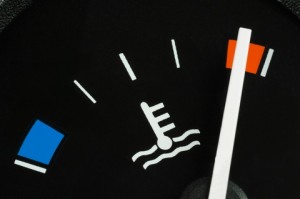Posted on 9/2/2014
So you’ve bought a used car in the Kansas City area. How do you know what you’re getting? It is hard to know what you’re getting because people in the Kansas City area sell cars for different reasons. Think about why you’ve sold cars. Did you just want something new or were there problems that you wanted to run away from. Maybe it was a little of both. Used cars with 25,000 to 35,000 miles on them are often lease returns, corporate program cars or vehicles that have done duty in rental fleets. We feel pretty confident because they’re newer and may still be under warranty. But how well have they been maintained? If you plan on owning a car for a long time, you’ll keep up on the maintenance so that you can avoid expensive repairs down the road. But, if you know you’re only going to have the car for two or three years, you may not be so committed to maintenance. It would be easy to think that skipping an oil change here and there wouldn’t ruin a b ... read more
Posted on 9/2/2014
Modern cars and trucks run on 12 volt electrical systems. 12 volts is enough to get the job done without having so much power that there is danger of electrocution. But today’s vehicles have more electrical components and do-dads than ever before. This really strains your electrical system, making it hard for the battery to keep up. Think about it: electric seats, seat heaters, power locks, windows and sun roofs. And then we have all the power outlets for our cell phones, computers, and DVD players. We also have navigation systems and powerful stereos. Plus there are all the engine and transmission computers, traction control, stability control, anti-lock brakes, sensors and on and on. Even the security system is running off the battery while the car is turned off. Fortunately, battery technology has given us resilient batteries that are able to meet these strenuous requirements. But the fact is, batteries just wea ... read more
Posted on 9/2/2014
Don’t you hate it when you hear that squeal from under the hood? It usually means there is a problem with the serpentine belt. The serpentine belt powers a lot of engine accessories. It runs the alternator-which charges the battery, the water pump-which cools the engine, the air conditioning and the power steering pump. All pretty important parts. It is called a serpentine belt because it snakes around a bunch of engine components. Serpentine belts are especially tough. They can last for years and go for tens of thousands of miles. But, with time they wear out. If your belt breaks while you are driving, everything will come to a halt within minutes. You have to stop the car or it will overheat, potentially causing major engine damage. And it probably won’t be at a convenient time or place. You might even need to get your car towed to a Kansas City automotive service center. That is why manufacturers recommend a belt replacement on schedule. You real ... read more
Posted on 9/2/2014
I know this topic sounds pretty basic, but as I have been doing a little research I see there is room for a little education in this department! 1. Don’t Top Off Your Gas Tank – When the gas pump clicks off automatically – DON”T TOP IT OFF! Gas pumps are designed to click off when your gas tank is full enough. Two things can happen if you “top off”. First gasoline needs room to expand. If you put too much gas in and then it expands it has to go somewhere! It can go into your vehicle’s vapor collection system. This may foul the system and cause it to malfunction because it is designed for vapor not liquid. Second if your tank can’t hold anymore it will go in the gas pump recovery system and then you just paid for a little gas you didn’t get. 2. Purchase In The Coolest Part Of The Day – In the morning or evening it is usually cooler. Gas become denser in cooler temperatures and gas pumps measure by volume. It is also b ... read more
Posted on 9/2/2014

You may not be thinking of your car overheating as the weather begins to cool but that doesn’t mean it couldn’t happen. Taking steps to understand what can cause it and what to do about it can prevent a real hassle just when you need it least. Most people think thermostat first when they hear overheated engine. And that can be the cause but not always. Other causes of overheating: Leaky head gasket Cooling system leaks Faulty fan Leaky water pump Slipping belt Lower radiator collapse Plugged or dirty radiator Dragging brakes Overworking the engine What to do if your car does overheat: If you’re stuck in traffic turn your heater up full blast to help move heat away from your engine. Find a safe place to park on the side of the road. Turn off the engine. Open the hood. If you can approach the engine check the coolant level at the reservoir. Do not open the radiator cap, it’s unde ... read more